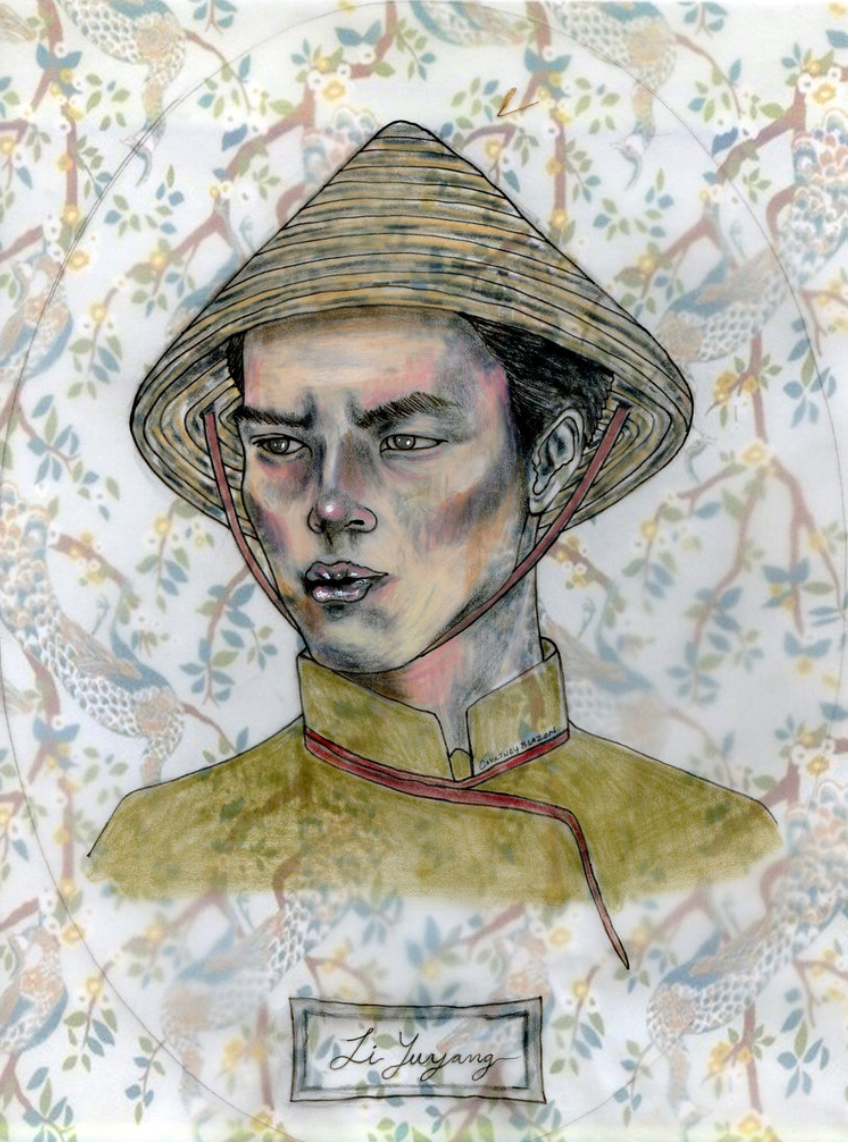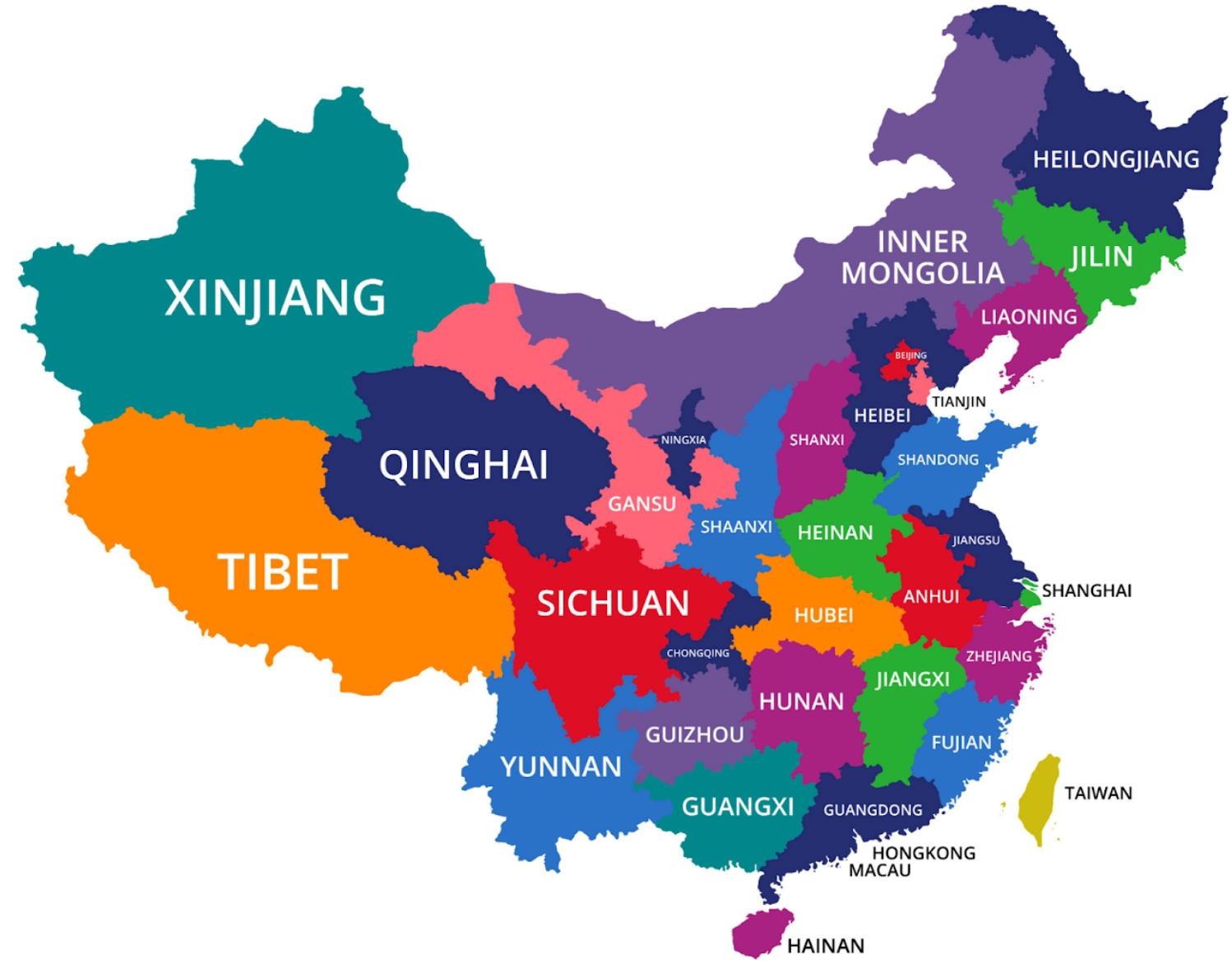- The poetry of the seven sorrows was an ancient Chinese poetry form, based on Wang Can’s Poem of the Seven Sorrows, also known as Song of the Seven Sorrows. This poem is about the suffering and atrocities of the chaotic collapse of the Han dynasty in 220 CE. The seven sorrows refer to the five senses (taste, smell, touch, sight and hearing) plus bitterness and injustice.
- This type of poetry was revived by Li Yuyang around 1815 CE.

Illustration of Li Yuyang (from Blazon, n.d.).
How is this related to climate?
- Poetry of the seven sorrows was revived by Confucian student Li Yuyang in response to the suffering endured after the eruption of Mount Tambora in Indonesia in 1815, the largest volcanic explosion in recorded history. The eruption sent sulfur dioxide and volcanic ash into the air, blocking out the sun and causing a volcanic winter in which average global temperatures dropped by 3°C.
- The Yunnan province of China (map below) where Li Yuyang lived, was hit particularly hard by the effects of the eruption.
- Yunnan had been very prosperous due to its agriculture and mining industries. It had fertile lowlands, a mild climate and plentiful copper, silver, gold and salt ores. At the turn of the 19th century, Yunnan was set to undergo a period of large imperial and industrial growth.
- Beginning about a month after Tambora erupted in 1815, Yunnan saw record low temperatures that persisted over the next three years. From 1815 to 1817, August temperatures were as much as 3℃ lower than the seasonal average, snow fell in the summer and rain poured down on the region.
- These climatic changes had devastating effects on crop yields. The rain drowned and rotted crops. Rice crops, exceptionally hardy plants, could not survive the summer cold snaps and production fell by as much as two-thirds.
- The reduction of crop yields led to extreme famine. Grain prices skyrocketed so many ordinary people could no longer afford it. Mothers sold their children for food. People ate white clay and soil, eventually dying from related intestinal problems.
- In 1814, before the eruption of Tambora, Yunnan experienced cyclical drought and, as a result, lower crop yields, so grain reserves were already depleted, contributing to the famine.
- By the summer of 1818, volcanic ash cleared from the air and temperatures and precipitation returned to normal. An exceptionally large harvest ended the famine.

The provinces of China. Note the Yunnan province, shown in light blue, in the southwest of China (from Briney, 2019).
- By dramatizing the five senses and the negative concepts of bitterness and injustice, Li Yuyang tried to capture the suffering and traumatic experiences of the Yunnan people whose lives were torn apart by climatic disaster.
Examples of Li Yuyang’s Poems (from Wood, 2014)
| Poem | Notes |
| A Sigh for Autumn Rain
The clouds like a dragon’s breath on the mountains, Winds howl, circling and swirling, The Rain God shakes the stars, and the rain Beats down on the world. An earthquake of rain. Water spilling from the eaves deafens me. People rush from falling houses in their thousands And tens of thousands, for the work of the rain Is worse than the work of thieves. Bricks crack. Walls fall. In an instant, the house is gone. My child catches my coat And cries out. I am running in the muddy road, then Back to rescue my money and grains from the ruins. What else to do? My loved ones must eat. There are no words for the bitterness of An empty September. The flood-drowned fields Harvest three grains for every ten of a good year. And from these three grains? Meals and clothes till next September. |
|
| Bitter Famine
Outside, the starved corpses pile high, While in her room the young mother Waits upon her child’s death. Unbearable Sorrow. My love, you cry to me to feed you – But no one sees my tears. Who can I tell which aches More? My heart or my body wasting away? She takes her baby out to the deep river. Clear and cool, welcome water… She will care for that child in the life to come. |
|
| Grain tax! The policemen shout. Their whips
Slice the air, and the agony of the people Is neverending. Who can plug heaven with a stone, Or command the Shang-yang stop flying? If only the sun would rise where it should, And the dragon with his dark clouds disappear. O our free hearts then! But when I ask if tomorrow Will be fine, the flower under my feet says nothing. |
|
| Rain falls unending, like tears of blood
From the sentimental man. Houses sink and shudder Like fish in the rippling water I see my older boy pulling at his mother’s skirt. The little one cries unheard. Money gone, and Rice rare as pearls, we offer our blankets to save ourselves. A single dou of grain, and nothing over to fix the house. We have only a few acres, and these grow nothing. My wife and children portion out their grains across The wide year. At least the taxman stays away. How could anyone fill his deep pockets? |
|
| 300 copper coins for a bag of grain
300 copper coins for three days of life Where can the poor people find such money? They barter their sons and daughters on the streets. Still they know the price of a son Is not enough to pay for their hunger. And yet to watch him die is worse. Think of our son’s body as food, as grain for one meal. The little ones don’t understand, how could they? But the older boys keep close, weeping. Stop crying and go with him. Selling is A blessing, because to buy you he must feed you. The cold wind blows in their faces, The parents wipe their tears away. But back home they cannot sleep While the birds moan like old men in the night |
|
| You open the Li Gate, and the hungry millions moan
At the smell of gruel. You give a bowl to the grown man, Half to the child. But don’t you see the strong men push forward, While the old stumble? We wait until noon, Bellies hollow like thunder. But your porridge Is like water. I will come again tomorrow, If I am not already dead. I will beg again for porridge, but quietly, so not to anger you. |
|
| Around the neighborhood, you can hear her crying,
That old widow, cold and hungry, and in rags. She will tell you the famous story of her son: Her tireless hands, in the fields from dawn to dusk, Could only feed two mouths. He took care of His mother, hence his fame. But Death cared less And took him away. The sweet bonds of their love Untied, the grey-haired widow is all alone. “My time is short, and I dream for our reunion, But life teases me awake. Why do I still have breath When I have no food? Take me, for his soul’s peace! … “ But only the birds listen. They take flight into the darkness. Lucky birds, however distant, fly home. Not her. |
|
References and additional resources
- “‘A Song of Seven Sorrows’ and ‘With the Army V’ by Wang Can.” Asia for Educators – Columbia. n.d. http://afe.easia.columbia.edu/ps/china/wangcan_poems.pdf.
- Andrews, E. “What Was the ‘Year Without a Summer’?” History. 2015. www.history.com/news/what-was-the-year-without-a-summer.
- Blazon, C. “Year Without a Summer Project.” Courtney Blazon Illustrations. n.d. http://www.courtneyblazon.com/year-without-a-summer-project.
- Briney, A. “Discover the 23 Provinces of China.” ThoughtCo. 2019. https://www.thoughtco.com/china-provinces-4158617.
- Fredrickson, E. “A Year Without a Summer – Apocalyptic Paintings of the 1815 Mount Tambora Eruption.” Enviro-History. 2018. http://enviro-history.com/year-without-summer.
- O’Connor, W. “The Volcano that Rewrote History.” The Daily Beast. 2017. https://www.thedailybeast.com/the-volcano-that-rewrote-history.
- University Corporation for Atmospheric Research. “Mount Tambora and the Year Without a Summer.” UCAR Center for Science Education. n.d. www.scied.ucar.edu/shortcontent/mount-tambora-and-year-without-summer.
- Wood, G. D. Tambora: The Eruption That Changed the World. Princeton University Press, 2014.
